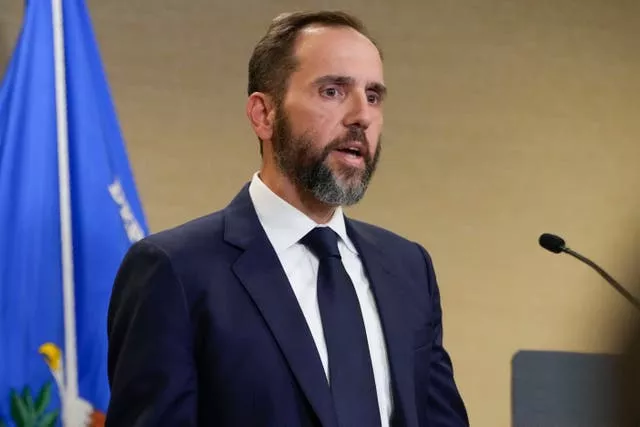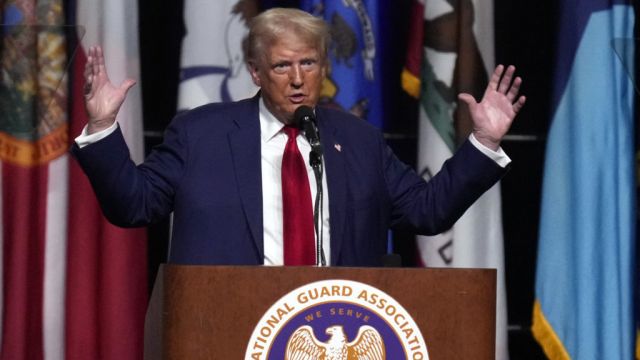Special counsel Jack Smith asked a federal appeals court on Monday to reinstate the classified documents case against former president Donald Trump after it was dismissed by a judge last month.
US District Judge Aileen Cannon threw out the case, one of four prosecutions of Mr Trump, after concluding that Mr Smith’s appointment as special counsel was unconstitutional.
Mr Smith’s team then appealed to the Atlanta-based 11th US Circuit Court of Appeals, with prosecutors saying in their appeal brief that Ms Cannon’s decision is “at odds with widespread and longstanding appointment practices in the Department of Justice and across the government”.

The appeal is the latest development in a prosecution that many legal experts consider a straightforward criminal case but has been derailed by delays, months of hearings before Ms Cannon, a Trump-appointed judge, and ultimately a dismissal order that brought the proceedings to at least a temporary halt.
It’s unclear how long it will take for the appeals court to decide the matter, but even if it overturns Ms Cannon’s dismissal and revives the prosecution, there is no chance of a trial before the November presidential election and Mr Trump, if elected, could appoint an attorney general who would dismiss the case.
The case includes dozens of felony charges that Mr Trump illegally retained classified documents from his presidency at his Mar-a-Lago estate in Palm Beach, Florida, and obstructed the government’s efforts to get them back.
Mr Trump has pleaded not guilty.
Mr Smith was appointed special counsel in November 2022 by Attorney General Merrick Garland to investigate Mr Trump’s handling of the documents as well as his efforts to undo the 2020 presidential election ahead of the January 6, 2021, riot at the US Capitol.
Both investigations resulted in criminal charges, though the election subversion prosecution faces an uncertain future following a US Supreme Court decision last month that conferred broad immunity on Mr Trump and narrowed the scope of the case.
Defence lawyers in the classified documents case had argued that Mr Smith’s appointment violated the Constitution’s appointments clause, a motion that prompted Ms Cannon to hold a multi-day hearing in June.
The judge sided with the defence, saying no specific statute permitted Mr Garland’s appointment of Mr Smith and saying Mr Smith had been unlawfully appointed because he had not been named to the position by the president or confirmed by the Senate.
Mr Smith’s team is expected to point out that special counsel appointments have been repeatedly upheld by judges in multiple cases, and that an attorney general’s ability to name a special counsel is well-established.







